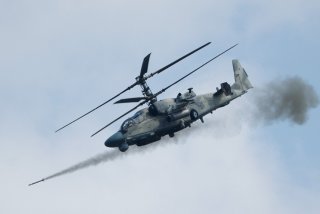How Biden Can Deter Putin from Invading Ukraine
If the administration is talking jaw-jaw, when the Kremlin is talking war-war, the Kremlin will draw (perhaps misleading) conclusions about its ability to act with impunity.
The contrast between Moscow and Washington’s approach to the relationship was particularly evident when Secretary Blinken told the OSCE on December 21 that ”I think you’ll see relatively early in the new year engagements in all those areas to see if we can advance the differences diplomatically.” That same day Russian Defense Minister Sergey Shoigu claimed without proof that the United States was preparing Ukrainian forces for “active hostilities” in eastern Ukraine, and had delivered “an unidentified chemical component” to the region “to commit provocations.” And newspapers also reported on December 21 that Moscow is reducing gas supplies to Europe, perhaps a pre-emptive warning not to impose sanctions on Russia if it escalates in Ukraine.
Happy Talk is not a Deterrence
This is all very dangerous. If the administration is talking jaw-jaw, when the Kremlin is talking war-war, the Kremlin will draw (perhaps misleading) conclusions about its ability to act with impunity. The administration’s weakness in response to months of cyber provocations has taught Putin that he can push Biden’s buttons and gain an advantage. Putin stepped back from confrontation over Ukraine in the spring, but now he is only increasing his demands. The greatest impediment to a major new Russian strike on Ukraine is Putin’s reading of Biden’s resolve. Time for Washington to cut the happy talk. It should immediately dispatch the additional weapons that it promised Ukraine and work with the Allies to boost our force posture in the Baltic states, Poland and Romania. Perhaps it could start by sending an air expeditionary force to Romania with F-22 Raptor and F-35 Lightning II stealth fighter jets as well as A-10 Thunderbolt attack aircraft as a deterrent.
John Herbst is the Director of the Eurasia Center at the Atlantic Council and was formerly U.S. Ambassador to Ukraine during the Orange Revolution.
Image: Reuters.

